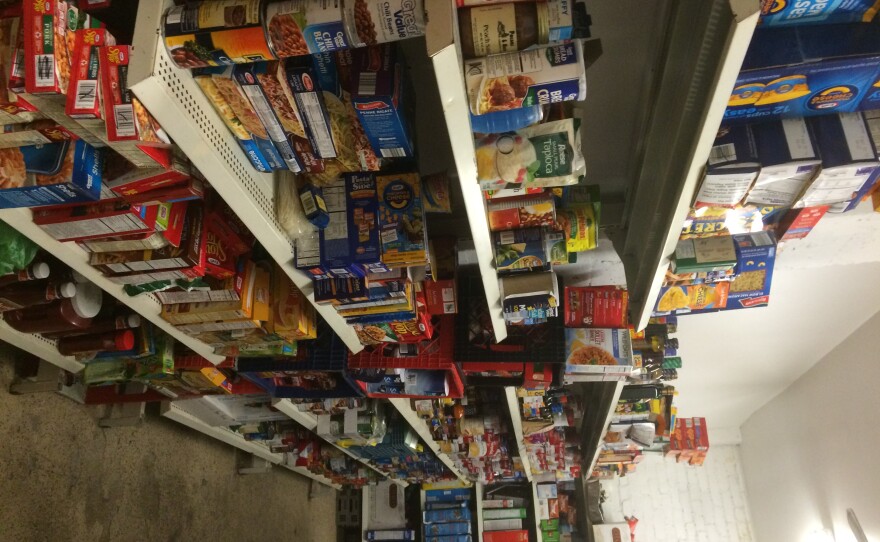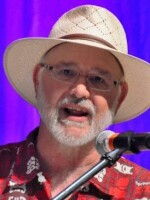Brian and Marilyn Bisbee, Co-Directors of the Carthage Crisis Center Since 2003, announced their retirement from the center effective January 2016. Brian and Marilyn sat down with KSMU Producer Mike Smith who recorded their remembrances for this edition of Making a Difference: Stories of Hope and Help.
Brian Bisbee: “ You remember hon that I was not real excited about coming to Missouri.”
Marilyn Bisbee: “Yes, and as I recall you said, “Missouri, I don’t want to go to Missouri!” And I said would you pray about that opportunity and we’ll see. We were in Tennessee at the time, and you can take it from there.”
Brian: “And the rest was history. Four days later at 4 in the morning I woke up and wrote down the things I would do if I was the director of the Carthage Crisis Center, and that started the process. Little did I know what an exciting fun time we would have here by the time things were done. The Carthage Crisis Center was started when a group of 9 churches got together around the idea of helping the homeless. Today 35-40 we have residents a staying here, but back when we arrived in 2003, we were a 16 bed facility with only 2 people staying here.”
Marilyn: “Yes, 1 woman and 1 man at that time, because the center was open only over the night. They would come in late afternoon, be fed dinner, have a place to sleep and then early in the morning they would be out the door and the door would be locked.”
Brian: “And they severely limited the number of people they took in. They averaged only 5 or 6 people with 16 beds, and we looked at that situation and said.. Why?”
Marilyn: “That’s when we changed the paradigm of the Carthage Crisis Center because we needed to be open during the day so people who are working late night shifts have a place to stay and sleep and be able to be fed and go to work and get back on their feet again.”
Brian: “And our numbers just exploded. All of a sudden we started to see the composition of the population change too, as we saw more and more homeless families coming in off the street. Families from Carthage, families from the community who were saying to us, We Need a Place to Stay.”
Marilyn: “We began to see more and more single women also. A variety of different things began to plague women as much as men, so we found more and more of them on the streets, and more of them needing a place to stay.”
Brian: “The biggest problem for me was the food. As you recall we didn’t have much in the way of food supply. We just had 3 little shelves with some canned goods; a partially full refrigerator; and a freezer with a few items in it. And then we started to make known our need for food, and…Wow!”
Marilyn: “Right, because as we let people know of our need, the food began to come. Weather it was a food drive for us, or somebody walking in the door saying Here I Butchered a Cow For You, or someone saying, Hey We Had a Big Wedding Feast and We’d Like to Give You All this Left Over. It came in different forms on different days in different ways, but it all began to be eaten, to be used and not wasted.”
Brian: “And 1 freezer became 2, became 3, became 4 and 5 and pretty soon we had 6 freezers on the little 3,100 square foot property we were operating out of there, remember that?”
Marilyn: “Yes, I remember, and with that we were also able to begin the process of helping other people outside of those living at the center…People came in with need.”
Brian: “And then remember 2 Christmas’s in. Christmas 2004, when we got a whole truck load of oranges and grapefruit and stuff like that. I put on a Santa hat and so did one of our daughters, and we went from place to place, to churches to day cares to Head Starts to food pantries all over and handed out oranges and grapefruit to everyone in sight because we couldn’t eat it all!”
Marilyn: (Laughter) “That was the first time I remember us having such an abundance of food we couldn’t eat or process it fast enough. And that was just the beginning of the opportunities that would come our way.”
Brian: “Now we have this building with 21,500 sq. feet per floor times 2, plus a full basement. We have 12 freezers on site. We have freezer space and commercial storage off the premises, so we have all the food we need. Monday of this week we had 10 pallets of food, on Tuesday we had 19. We’ve distributed 50,000 pounds of food this week and 85,000 pounds of food 3 weeks into this month. Annually, we’re able to distribute about 500,000 pounds of food to our food network of 70 organizations. The thing is, it’s all about…not staff, it’s not all about money, it’s all about helping and shaping the lives of people in need. That’s what people have embraced. That’s the big picture, to impact the lives of broken people. So thank you, (Marilyn) for helping me all these years. It’s been great. It’s been a great time and I really appreciate you.”
Marylyn: “Thank you. I appreciate you because you saw in me, the potential to come along side and be a help to you in this process of helping people. So, thank you for believing in me….”
The Carthage Crisis Center is a faith based homeless, recycling and food distribution center located in the city of Carthage. CCC is supported by the citizens and businesses of Carthage, the Carthage Community Foundation and the Community Foundation of the Ozarks. For information, www.carthagecrisiscenter.org or www.cfozarks.org








